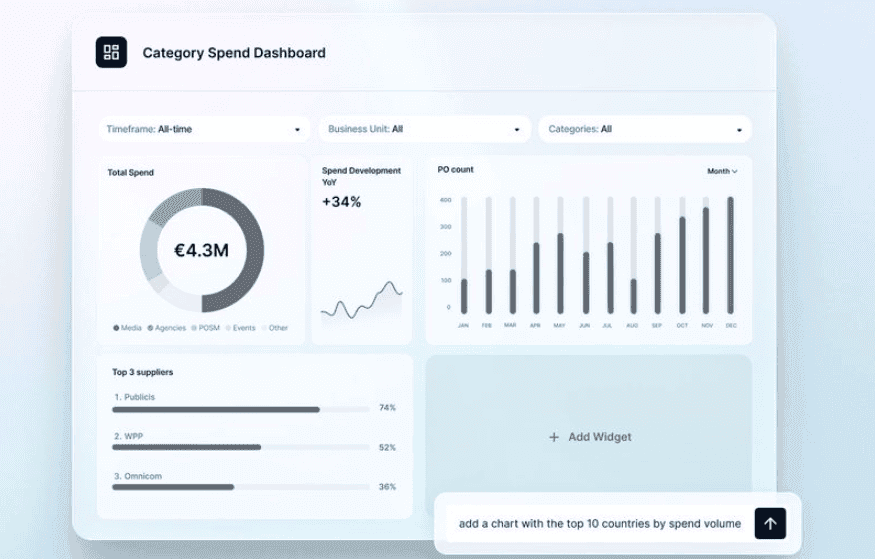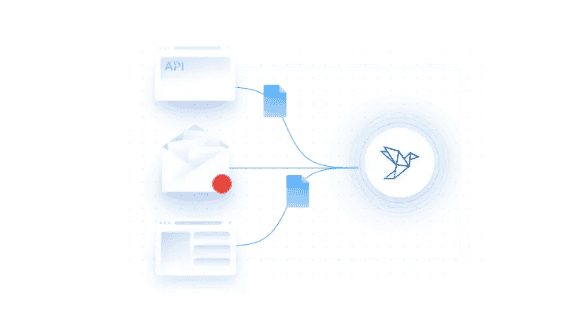Conveyor Raises $20M to Revolutionize Vendor Security Reviews and RFPs with AI Automation
2 Sources
2 Sources
[1]
Conveyor uses AI to automate the painful process of vendor security reviews and RFPs with AI
Selling software to companies is such a time-consuming process. Even after customers are convinced a product is right for their organization, they still need to ensure the software meets all their security requirements. Chas Ballew realized just how painfully slow and tedious the vendor security and compliance review process was when he was running Aptible, a hosting platform for healthcare companies that he co-founded in 2013. "What we saw was that every time one of our customers was trying to close a deal, they would have to explain all of their security and compliance practices over and over again to their customer," Ballew told TechCrunch. Filling out detailed questionnaires took software vendors weeks, often delaying the original sale and contract renewals. In 2021, Ballew left Aptible to found Conveyor, a startup dedicated to automating the lengthy customer security approval processes. Soon after Conveyor's launch, OpenAI introduced ChatGPT, and the company seized the opportunity to power its product with AI. While many enterprises remain cautious about adopting AI software, Conveyor's customers embraced the idea of delegating the otherwise monotonous work to it. "It's very redundant and repetitive," Ballew said about the security reviews. "[Customers] don't feel it creates a ton of value, so they're very happy for AI to fill out compliance forms." According to Ballew, Conveyor was the first AI vendor fully deployed in production environments at Zendesk, Atlassian, and Qualtrics. The startup's customer base also includes Workday, Netflix, Zapier, and over 400 other companies, Conveyor says. Conveyor claims that its AI agent can fill out over 90% of customer security questions fully, autonomously and accurately, saving customers many hours and accelerating their sales process. Building on its success in security review, the startup is now introducing AI-powered automation for requests for proposals (RFPs), which are often necessary components of any sales process. Conveyor's expansion into automating RFPs is expected to attract a wave of new customers outside the technology sector, significantly boosting the startup's appeal to investors. The new product has helped Conveyor attract more funding: a $20 million Series B led by SignalFire with participation from Oregon Venture Fund and Cervin Ventures. In many ways, the work performed by Conveyor is a perfect use case for AI because most humans dread doing it. Still, full AI automation of the process demands extensive guardrails. "We keep everything very secure, very isolated for each customer, which is very important," Ballew said. "Companies want to make sure that their confidential data is only used to process their information and it's not exposed or mixed in with anyone else's data." Conveyer isn't alone in addressing this lesser-known issue for sales teams. Other startups developing software for RFPs and security questions include Loopio, Responsive, and Rohirrim.
[2]
Conveyor Raises $20 Million for AI Agents to Automate Security Reviews, RFPs | PYMNTS.com
By completing this form, you agree to receive marketing communications from PYMNTS and to the sharing of your information with our sponsor, if applicable, in accordance with our Privacy Policy and Terms and Conditions. The company will use the new funding to scale its AI research and engineering teams, expand its go-to-market initiatives and pursue its long-term goal of building a trust layer for interactions between buyers' and sellers' AI agents, it said in a Thursday (June 12) press release. "We're excited to accelerate our mission of fully automating complex end-to-end workflows and removing trust bottlenecks that slow down enterprise sales," Conveyor CEO Chas Ballew said in the release. One of Conveyor's currently available AI Agents, Sue, automates customer security reviews by helping customers self-serve a vendor's sensitive documents and security information via a Trust Center and answering security questionnaires with accuracy of 95% to 97%, according to the release. The company's other AI agent, Phil, autonomously researches RFP requirements and drafts proposal responses, per the release. Conveyor's solutions are currently used by more than 480 customers, have answered more than 1 million questions and have enabled more than 800,000 Trust Center interactions, according to the release. Tony Pezzullo, principal at SignalFire, which led the funding round, said in the release that Conveyor is "redefining agentic automation in the enterprise." "Their vision enables the first platform for agent-to-agent communication in customer trust workflows; building the canonical interface for RFPs, security questionnaires and eventually all high-fidelity customer-facing knowledge base queries," Pezzullo said. Conveyor's latest funding round followed a $12.5 million Series A round that the company announced in October 2023. AI agents have the potential to radically transform operations in the B2B world, where speed, efficiency and bottom-line results rule the day, PYMNTS reported in January. In another, separate development in this space, payments technology firm Transcard said in April that it added agentic AI capabilities to vendor network management system to automate onboarding and know your business (KYB).
Share
Share
Copy Link
Conveyor, a startup using AI to automate vendor security reviews and RFPs, has raised $20 million in Series B funding. The company's AI agents can complete over 90% of customer security questions autonomously, significantly accelerating the sales process for software vendors.
AI-Powered Revolution in Vendor Security Reviews and RFPs
Conveyor, a startup founded by Chas Ballew in 2021, has successfully raised $20 million in Series B funding to further develop its AI-powered solution for automating vendor security reviews and requests for proposals (RFPs). The funding round was led by SignalFire, with participation from Oregon Venture Fund and Cervin Ventures
1
2
.
Source: TechCrunch
Addressing a Time-Consuming Challenge
The process of selling software to companies often involves lengthy security reviews and compliance checks, which can significantly delay sales and contract renewals. Ballew, who previously co-founded Aptible, a hosting platform for healthcare companies, experienced this pain point firsthand
1
."What we saw was that every time one of our customers was trying to close a deal, they would have to explain all of their security and compliance practices over and over again to their customer," Ballew told TechCrunch
1
.AI-Powered Solution

Source: PYMNTS
Conveyor's AI agents, including "Sue" for security reviews and "Phil" for RFP responses, can autonomously complete over 90% of customer security questions with high accuracy. This automation saves customers significant time and accelerates the sales process
1
2
.The company's solutions have already gained traction in the market:
- Over 480 customers, including Zendesk, Atlassian, Qualtrics, Workday, Netflix, and Zapier
- Answered more than 1 million questions
- Enabled over 800,000 Trust Center interactions
1
2
Expanding Beyond Tech
While initially focused on the technology sector, Conveyor's expansion into automating RFPs is expected to attract customers from various industries. This broadened appeal has contributed to the startup's success in securing additional funding
1
.Ensuring Data Security and Privacy
Despite the extensive use of AI, Conveyor emphasizes the importance of data security and privacy. Ballew stated, "We keep everything very secure, very isolated for each customer, which is very important. Companies want to make sure that their confidential data is only used to process their information and it's not exposed or mixed in with anyone else's data"
1
.Related Stories
Future Plans and Industry Impact
With the new funding, Conveyor plans to:
- Scale its AI research and engineering teams
- Expand go-to-market initiatives
- Pursue its long-term goal of building a trust layer for interactions between buyers' and sellers' AI agents
2
Tony Pezzullo, principal at SignalFire, praised Conveyor's vision: "Their vision enables the first platform for agent-to-agent communication in customer trust workflows; building the canonical interface for RFPs, security questionnaires and eventually all high-fidelity customer-facing knowledge base queries"
2
.Competition and Market Potential
While Conveyor is making significant strides in this space, it's not alone. Other startups addressing similar challenges include Loopio, Responsive, and Rohirrim
1
. The potential for AI to transform B2B operations is substantial, with implications for speed, efficiency, and bottom-line results2
.As AI continues to evolve, its application in automating complex business processes is likely to expand further, potentially reshaping how enterprises handle trust-related workflows and communication between AI agents.
References
Summarized by
Navi
[1]
Related Stories
Procure AI Secures $13M to Revolutionize Enterprise Procurement with AI Agents
27 Nov 2025•Startups

Heron Secures $16M to Revolutionize Document-Heavy Work with AI Automation
16 Jul 2025•Business and Economy

CrewAI Secures $18M Funding and Launches Enterprise Platform for AI Agents
22 Oct 2024•Technology

Recent Highlights
1
ByteDance's Seedance 2.0 AI video generator triggers copyright infringement battle with Hollywood
Policy and Regulation

2
Demis Hassabis predicts AGI in 5-8 years, sees new golden era transforming medicine and science
Technology

3
Nvidia and Meta forge massive chip deal as computing power demands reshape AI infrastructure
Technology





